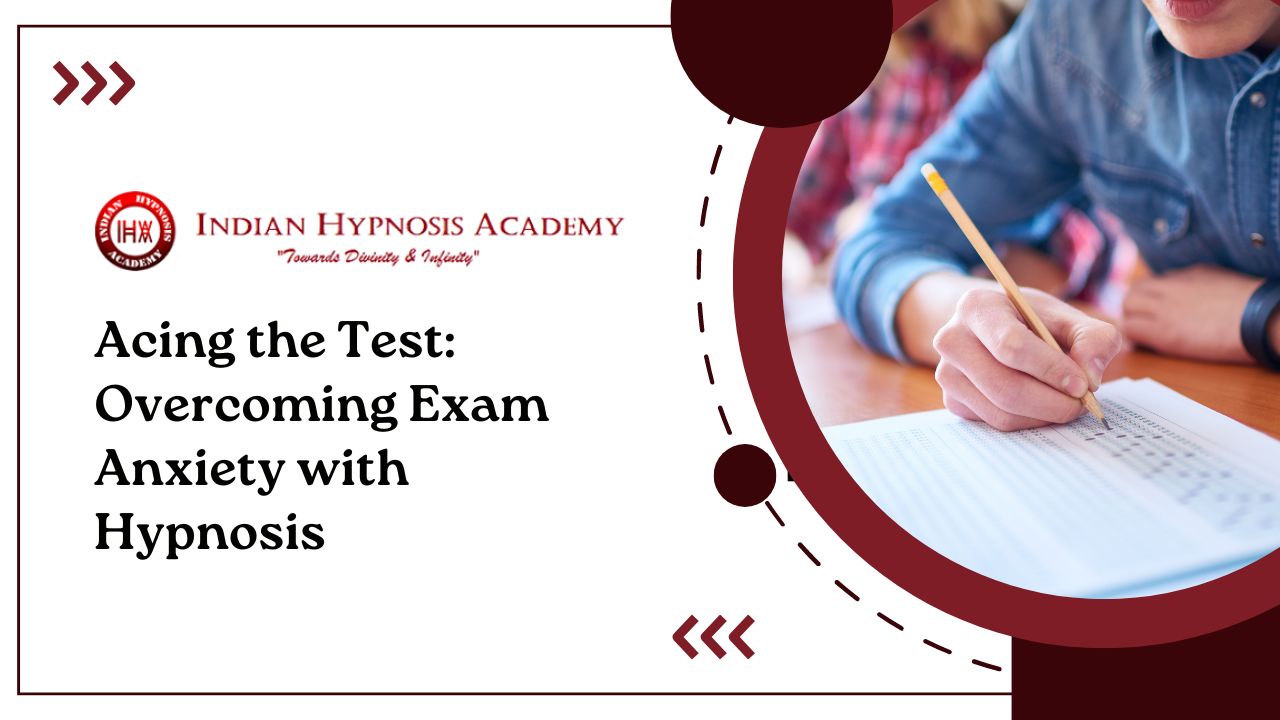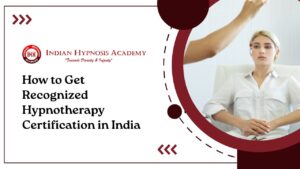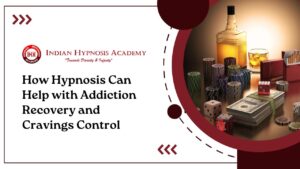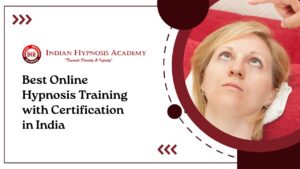Exam day can feel like a ticking time bomb, can’t it? The pressure builds, and suddenly your mind goes blank. For many students, exam anxiety is an all-too-common experience that can overshadow months of hard work. Just imagine walking into that classroom with confidence instead of dread. What if you could unlock a state of calm focus through the power of your own mind? Hypnosis offers a unique approach to tackling those anxious thoughts head-on. Through relaxation techniques and mental conditioning, hypnosis can transform how you face exams—turning fear into clarity and stress into success. Let’s explore how this fascinating method works and how it might just be the key to acing your next test.
Understanding Exam Anxiety
Exam anxiety is more than just nerves. It’s a complex emotional response that affects students of all ages. The fear of failure and the pressure to perform can create an overwhelming sense of dread.
Physiologically, this anxiety triggers the body’s fight-or-flight response. Heart rates spike, palms sweat, and thoughts race. This reaction often leads to mental blocks right when you need clarity most.
The roots of exam anxiety can stem from various sources—academic expectations, past experiences, or even personal perfectionism. Each factor contributes uniquely to how individuals experience stress during exams.
Recognizing these feelings is the first step toward addressing them. Understanding your own triggers can help demystify what happens in those high-pressure moments. By becoming aware of these patterns, you set the stage for effective coping strategies down the line.
The Negative Effects of Exam Anxiety
Exam anxiety can have profound effects on students. It often manifests as overwhelming fear and dread, making it difficult to focus during studying or while taking the test itself.
Physically, the symptoms may include increased heart rate, sweating, and even nausea. These reactions can create a vicious cycle of stress that further impairs performance.
Emotionally, students might feel a sense of inadequacy or self-doubt. This negativity not only affects exam results but also dampens motivation for future academic endeavors.
Socially, anxiety can lead to isolation. Students may withdraw from study groups or avoid engaging with peers altogether out of fear of judgment.
Long-term exposure to this anxiety can result in chronic stress levels that impact overall well-being. Finding effective coping strategies is crucial for breaking free from this cycle and restoring confidence in academic abilities.
How Hypnosis Can Help
Hypnosis offers a unique approach to tackling exam anxiety. It’s not about swinging pocket watches or mind control; it’s a deep relaxation technique that helps you access your subconscious.
During hypnosis, the mind becomes more open to positive suggestions and constructive thought patterns. This allows individuals to rewrite their inner narrative about exams, transforming fear into confidence.
Through guided imagery, you visualize calm scenarios and successful outcomes. These mental rehearsals can solidify feelings of preparedness and ease tension.
Moreover, hypnosis can help regulate physical responses too. By calming the nervous system, it reduces symptoms like racing hearts or sweaty palms during tests.
Many people find that regular sessions lead to lasting changes in how they perceive challenges related to exams. With this newfound mindset, students often feel more equipped and secure as test day approaches.
Finding the Right Hypnotherapist
Choosing the right hypnotherapist is a crucial step in managing exam anxiety. Start by researching professionals in your area. Look for credentials and experience, especially with anxiety-related issues.
Read reviews or testimonials from former clients. This can provide insight into their effectiveness and approach. A good hypnotherapist will have a solid understanding of both hypnosis techniques and psychological principles.
Consider scheduling an initial consultation. This allows you to gauge their communication style and comfort level. Trust your instincts; feeling comfortable with your therapist can enhance the process significantly.
Ask about their methods during this meeting. Some may use more traditional approaches, while others might incorporate modern techniques tailored to individual needs.
Don’t hesitate to seek recommendations from friends or mental health professionals who understand the nuances of hypnosis for exam anxiety. Finding someone who resonates with you is key to achieving positive results.
Preparing for Your Hypnotherapy Session
Preparing for your hypnotherapy session can make a significant difference in the experience. Start by setting a clear intention. Think about what you wish to achieve and jot down those goals. This clarity will guide the process.
Next, consider your mindset leading up to the appointment. Try to approach it with an open heart and curiosity. Leave behind any skepticism or doubt; this is all part of building trust in the method.
Dress comfortably for your session. Loose-fitting clothes help you relax better, allowing you to be more receptive during hypnosis.
It might also help to practice relaxation techniques beforehand—deep breathing or gentle stretching can ease tension and prepare your mind for focus.
Arrive early if possible. Rushing can create unnecessary anxiety, so allow yourself time to settle into the space before starting your journey into hypnosis.
The Benefits and Results of Hypnosis for Exam Anxiety
Hypnosis offers a powerful tool for managing exam anxiety. This technique helps you tap into your subconscious mind, allowing deep relaxation and focus.
One major benefit is the reduction of stress levels. As your body relaxes, tension dissipates, making it easier to think clearly during exams.
Another advantage lies in improved confidence. By reshaping negative thought patterns, hypnosis encourages a positive mindset that can enhance performance.
Additionally, many students report better study habits after sessions. Hypnosis can foster motivation and concentration, enabling more effective preparation.
The calming effects often extend beyond exams. Many find they experience general improvements in their mental well-being and overall resilience against future stresses.
Embracing this method may lead to transformative changes not just during testing but in various aspects of academic life as well.
Additional Tips for Managing Exam Anxiety
Managing exam anxiety takes more than just hypnosis. Simple lifestyle changes can make a big difference.
Start with regular exercise. Physical activity releases endorphins, which boost your mood and reduce stress levels.
Consider practicing mindfulness or meditation for a few minutes each day. These techniques help focus your mind and promote relaxation.
Establishing a study routine is also crucial. Break your material into manageable chunks, setting specific goals to avoid feeling overwhelmed.
Don’t forget the power of proper nutrition. Eating balanced meals will fuel both your body and brain, enhancing concentration during studies.
Connect with friends or family for support too. Sharing feelings can lighten the load and offer fresh perspectives on handling pressure.
Remember to breathe deeply when you feel anxious before an exam; this simple act can ground you in the moment and ease tension significantly.
Conclusion
Exam anxiety is a common challenge that many students face. Understanding its roots can help you manage it effectively. By recognizing the negative effects of this anxiety, such as decreased performance and increased stress levels, you empower yourself to seek solutions.
Hypnosis offers a unique approach to overcoming these feelings of fear and self-doubt. It works by targeting the subconscious mind, allowing for deep relaxation and positive reinforcement. Finding the right hypnotherapist is crucial; look for someone with experience in exam anxiety specifically.
Preparing for your session involves being open-minded and willing to engage in the process fully. The benefits often include improved focus, reduced stress, and greater confidence when facing exams.
In addition to hypnosis, implementing additional strategies like mindfulness exercises or proper study habits will further enhance your ability to handle exam pressures. Embracing various methods creates a well-rounded approach to managing anxiety.
With support from hypnosis and other techniques at your disposal, you’re better equipped to tackle those upcoming tests with calmness and clarity. Each step you take towards addressing this challenging issue brings you closer to achieving academic success while maintaining peace of mind.




